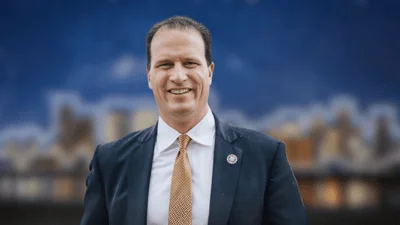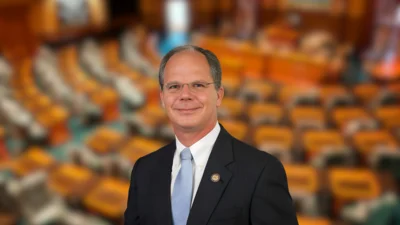The Congressional Record is a unique source of public documentation. It started in 1873, documenting nearly all the major and minor policies being discussed and debated.
“TRANSPORTATION REAUTHORIZATION BILL” mentioning the U.S. Dept. of Transportation was published in the Senate section on pages S11629-S11630 on Nov. 4, 1997.
The publication is reproduced in full below:
TRANSPORTATION REAUTHORIZATION BILL
Mr. BOND. Mr. President, I rise today to present to my colleagues what I think is a compromise that will help us get over a very difficult situation. I am very proud to be a member of the Environment and Public Works Committee and to have joined with the leadership of that committee--Chairman Chafee, Senator Warner, Ranking Member Baucus, and the other members of the committee, in reporting out what I believe is an excellent transportation reauthorization bill.
I think this is a bill that we need for the next 6 years. We need it for transportation, for safety, for economic development. The simple fact of the matter is, without discussing the whys, the ``where we are'' is we are not going to get that passed this year. There, in my view, is no way that we can get agreement, get it passed on the floor of the Senate, and agree with the House on a very different approach they are taking prior to the time we adjourn for the remainder of the year.
If we don't--and we had a hearing today in Environment and Public Works--No. 1, the Department of Transportation operations cannot continue, vitally needed safety programs cannot continue, transit programs cannot continue, and many States will not be able to let the contracts they need for major construction projects in the coming months because they will not have the obligational authority.
There is a lot of money in the States--over $9 billion--that is unobligated that has been authorized, but the problem is very often it is in the wrong category. The States have money, but it may be in CMAQ when they need it in STP or the various different programs.
The question is, what are we going to do about it? Some in the House have presented a proposal that is sort of a 6-month extension. It keeps the old formula and tries to jam everything into 12 months. Frankly, that is very unfair to my State and quite a few other States that are known in this body as donor States.
I can assure you that any time we try to do something in the highway and transportation area that gets us into a formula discussion, we are going to spend some time at it. I feel very strongly about the formulas, and I intend to express myself about them, as other Members should.
What are we going to do about it? What are we going to do about the fact that safety and transit programs run out and many States will not be able to let contracts they need for major projects at the end of the winter when they have to get ready for the summer construction season?
Today I presented to my colleagues in the Environment and Public Works Committee a compromise which I think enables us to continue these vitally important operations. Certainly highways and transportation are right at the top of the list of things that my constituents in Missouri want to see us do. It will enable us to come back after the first of the year, pass a 6-year reauthorization and do so without penalizing the States and the transit and the safety programs.
What we would do under my bill is provide 6 months of funding for the safety programs, the Department of Transportation operations and transit. For the unobligated balances, we would give the States complete flexibility. If they want to put surface transportation money into construction mitigation, they could do so, and they would be able to continue their operations and issue contracts through March 31.
Some States do not have enough unobligated balances to be able to continue their contracting authority through March 31 at the same rate they had done in this year or the previous year. So for those States, my measure would provide them an advance, an advance against what we are going to authorize in the bill that we must pass and that the President must sign so transportation can go forward in this country.
For most States, it means a small amount, but we would advance fund that money without regard to the formula. Say, for example, you had
$250 million in unobligated balances, but in the first 6 months in one of those years you obligated $290 million. We would have the Department of Transportation advance $40 million to that State so that between now and March 31, the State would be able to obligate $290 million for transportation purposes.
Later on in the year, when that State's allocation is determined and, say, under the formula that State would get $500 million from probably, say, $800 million for the year, that $40 million would be deducted from the allocations under the new authorization, and they would get $760 million.
What this does, Mr. President, is allow us to keep things operating, keep contracts being let, keep transit programs and safety programs operating without getting bogged down in the formula fight.
As I said earlier, when I say ``bogged down,'' I look forward to the very active discussion of the funding formula. It is one of the most important things that we need to do around here in terms of economic development, transportation and safety. But it will take some time. I would envision that whenever the majority leader wants to schedule it, it would take at least a couple of weeks and maybe more. So while we are doing that, we should not cut off the transit, the safety, or the contracting obligation that the States would normally do.
As I said, we presented this at the EPW hearing this morning. We had a very good discussion with representatives of the National Governors' Association and the Department of Transportation.
Mr. President, the National Governors' Association has sent a letter signed by 39 Governors. Getting 39 Governors--having been one--I can tell you, to sign on a letter is not easy. But the Governors very simply said:
. . .it is imperative for the Senate to consider and pass short-term legislation providing funding for highway, transit, and safety programs and to complete a conference on that legislation with the House of Representatives. Such legislation would minimize the interruption in funding to State and local governments. It would also avoid the disastrous effects that a several-month lapse in authorization would have on many States' transportation programs.
Mr. President, I ask unanimous consent that that letter be printed in the Record.
There being no objection, the letter was ordered to be printed in the Record, as follows:
National Governors Association,
Washington, DC, November 4, 1997.Hon. Trent Lott,Majority Leader, U.S. Senate,Washington, DC.
Hon. Thomas A. Daschle,Minority Leader, U.S. Senate,Washington, DC.
Dear Senator Lott and Senator Daschle: Given the very limited time remaining in this legislative session, it is imperative for the Senate to consider and pass short-term legislation providing funding for highway, transit, and safety programs and to complete a conference on that legislation with the House of Representatives. Such legislation would minimize the interruption in funding to state and local governments. It would also avoid the disastrous effects that a several-month lapse in authorization would have on many states' transportation programs.
Sincerely,
Governor George V. Voinovich; Governor Thomas R. Carper;
Governor Edward T. Schafer, Co-Chair, Transportation
Task Force; Governor Paul E. Patton, Co-Chair,
Transportation Task Force; Governor Mike Huckabee;
Governor Roy Romer; Governor Lawton Chiles; Governor
Philip E. Batt; Governor Terry E. Brandstad; Governor
Mike Foster; Governor Parris N. Glendening; Governor
Arne H. Carlson; Governor Marc Racicot; Governor Jeanne
Shaheen; Governor Jane Dee Hull; Governor Pete Wilson;
Governor John G. Rowland; Governor Zell Miller;
Governor Frank O'Bannon; Governor Bill Graves; Governor
Angus S. King Jr.; Governor John Engler; Governor Mel
Carnahan; Governor Bob Miller; Governor Christine T.
Whitman; Governor James B. Hunt Jr.; Governor David M.
Beasley; Governor Don Sundquist; Governor Howard Dean,
M.D.; Governor Gary Locke; Governor Tommy G. Thompson;
Governor Benjamin J. Cayetano; Governor John A.
Kitzlaber; Governor William J. Janklow; Governor
Michael O. Leavitt; Governor Roy Lester Schneider,
M.D.; Governor Cecil H. Underwood; Governor E. Benjamin
Nelson; Governor Pedro Rossello.
Mr. BOND. Mr. President, in conclusion, let me say that we have had good ideas from both sides of the aisle in the EPW Committee. We look forward to working with Chairman Warner, Senator Baucus, Chairman Chafee, the other members of the committee.
I hope this is something that we could agree on and move forward on quickly so that our States and the traveling public will not suffer while we go through the very important discussions on coming up with a new highway funding formula.
I invite comments. I look forward to working with my colleagues. This one I hope we can do on a bipartisan basis without the regional differences that will inevitably arise when we begin discussion of the funding formula.
Mr. President, I appreciate the time, and I yield the floor.
____________________








